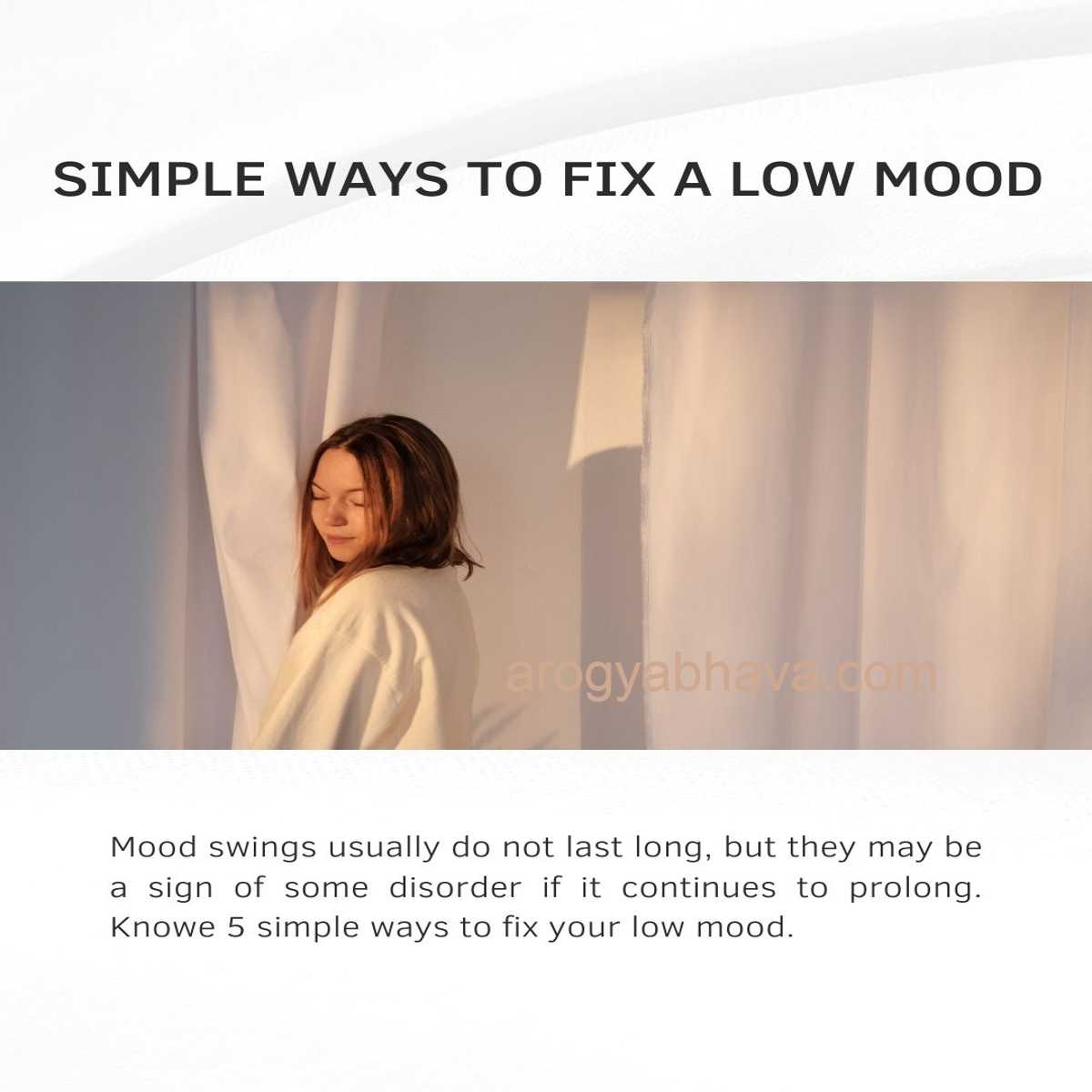Mastering Your Moods – Simple Ways To Fix A Low Mood

Everyone gets moody. You may feel on top of the world on some days while wanting to curl up under a duvet on other days. It’s okay to experience sadness occasionally.
What mood refers to?
The majority of people are aware of their moods. But do you understand what “mood” refers to? or the source of your mood? And how can you alter your mood?
A mood is simply a component of your emotional rhythm that is slightly less powerful than an emotion. Additionally, it frequently has a trigger, like an occasion or experience.
Your mood may be something you’ve tried to regulate (like tranquilly from doing yoga) or something you feel you have no control over (such as annoyance about a parking ticket).
Becoming aware of your moods
Understanding your moods may help you determine what triggers them and how you typically behave at different times of the day.
You undoubtedly already know that being happy makes you feel good (such as when you feel content, loving or excited). And you are probably aware that when you are in a bad mood, you feel considerably worse (such as when you feel anxious, disgusted or annoyed).
You can benefit from your moods. And they have a significant role in how you decide to act and think. A bad mood may be a sign that there is a problem that needs to be solved.
Most moods disappear within a day or two. You can still go about your everyday tasks even when you’re not feeling well. But it’s crucial that you get assistance if depressive or gloomy feelings are seriously interfering with your life.
What causes a low mood?
Difficult events and experiences might make us feel down or depressed. Relationship issues, bereavement, sleep issues, workplace stress, bullying, chronic sickness, or pain are all possibilities. It is easy to feel down without having a specific reason.
Emotions and moods are intricate. It is believed that three factors—biology (hormones and brain chemicals, for example), psychology (personality and learnt reactions), and environment—combine to produce them in the brain (like illness and emotional stress). Common, everyday factors that can affect mood include:
- Stress
- insufficient sleep
- exhaustion and overwork,
- The bad news
- The weather
- Hormonal changes brought on by your menstruation
- Puberty
- Menopause, or pregnancy
- A lack of exercise
- Need a break
- Anxiety
- Depression
Also Read: How Does Depression Affect Your Health?
5 ways to fix a low mood
Mood swings usually do not last long, but they may be a sign of some disorder if it continues to prolong. Here are 5 simple ways to fix your low mood.
- Know when it hits you: Like the name, mood swings are unpredictable but have a pattern for every individual. Knowing this – and your energy levels – would certainly help you maintain poise throughout the day.
- Get enough sleep: Make sure you get enough sleep, at least eight hours a day. If sleeplessness continues to dodge you, it is an indication of some unperceived disorder.
- Eat healthily: This is another vital point that is often overlooked. There is evidence that carbohydrates help you feel better. Reduce your intake of coffee and sugared items.
- Take time outdoors: It is important to develop your own distractions. A good walk, for example, would certainly alleviate the heaviness in the head.
- Seek company: Good companions and a light conversation increases your energy levels and creates a positive outlook.
Read Also: Mental Wellness: 6 Steps To Mental Wellbeing